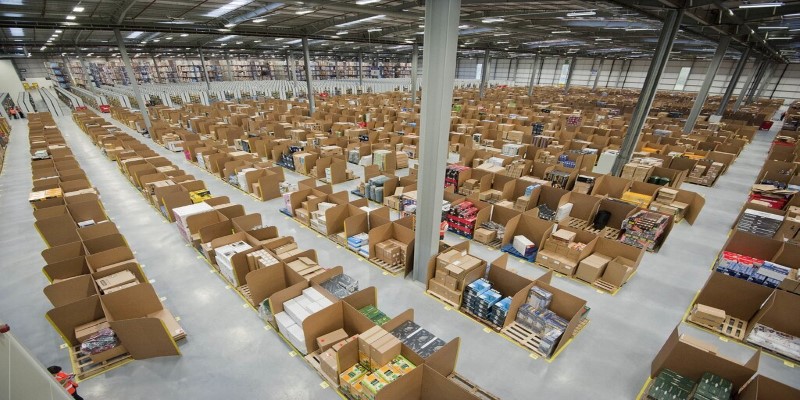Shopping Local Vs Global: Which Is Better For Your Wallet?
When it comes to making purchases, we’re often faced with a choice between shopping locally or buying from global retailers. Each option has its advantages and disadvantages, and the decision can greatly impact both your wallet and the broader economy. As we moving to 2025, more people are starting to reconsider where they spend their money, taking into account the financial and environmental costs of their purchases.
When it comes to making purchases, we’re often faced with a choice between shopping locally or buying from global retailers. Each option has its advantages and disadvantages, and the decision can greatly impact both your wallet and the broader economy. As we moving to 2025, more people are starting to reconsider where they spend their money, taking into account the financial and environmental costs of their purchases. This article breaks down the key factors to consider when choosing between local and global shopping so you can make a decision that benefits both your finances and your community.
Price Differences: Local Vs. Global Shopping
One of the most obvious factors when deciding between local and global shopping is the price. Global retailers, particularly those operating online, often offer lower prices compared to local stores. This is largely due to their economies of scale, where bulk purchasing and large production runs can drive down costs. Online stores can also save on overhead costs like rent and utilities, passing those savings on to consumers.

However, these cheaper prices don’t always mean better deals. While a product from a global retailer may seem like a bargain at first, it’s important to consider hidden costs such as shipping fees, customs duties, and the potential for return complications if the item doesn’t meet your expectations. Local stores, on the other hand, often have slightly higher prices due to smaller inventory and the cost of operating a physical store. But what they lack in low prices, they make up for in convenience, quality control, and customer service.
In many cases, buying locally can lead to unexpected savings. For example, you might pay a bit more upfront, but the cost of shipping, potential import taxes, or long wait times for global orders might make the total cost of a global purchase much higher than expected. Additionally, local businesses often provide more personalized service and better product recommendations, which can lead to smarter purchases.
The Convenience Factor: Shopping Local Vs. Global
When it comes to convenience, online shopping from global retailers often wins out. You can shop from the comfort of your home, browse a vast selection of products, and have them delivered right to your door. Many global companies offer quick shipping times, and some even provide next-day delivery options.

In contrast, shopping locally requires you to visit physical stores, which may not always be convenient depending on your location or schedule. Local shops might not have the extensive selection that global retailers do, and finding exactly what you need could take some time. That said, the convenience of being able to see and touch the product before buying it can’t be understated. You can also avoid the hassle of returns that often accompanies online shopping.
Local shopping also has a unique benefit that global shopping can’t replicate: immediate gratification. With a local purchase, you can take your item home right away, while online orders may require days or even weeks to arrive. If you need something urgently, a local retailer is usually your best bet.
Supporting Your Community: The Impact Of Shopping Locally
One of the strongest arguments for shopping locally is its positive impact on the community. When you shop at local businesses, the money you spend tends to stay within the local economy. Local shop owners are more likely to reinvest in the area, whether that's by supporting local suppliers or employing local workers. This creates a cycle where money circulates through the local economy, benefiting everyone, from employees to other small businesses.

Additionally, shopping locally helps preserve your community's unique character. Local businesses often carry one-of-a-kind items that reflect the area's culture, craftsmanship, and tastes. Supporting these businesses keeps the local economy vibrant and diverse, which benefits everyone in the long run.
On the other hand, spending money with global corporations can drain local resources. Many of these large companies are not tied to the community in any meaningful way, and the profits they generate often go overseas or to corporate shareholders. While global shopping can offer convenience and lower prices, it doesn’t support local workers or the local economy in the same way.
Environmental Impact: The Carbon Footprint Of Your Purchases
Another factor to consider is the environmental impact of your purchases. Global shopping, particularly online shopping, has a significant carbon footprint. Products shipped from across the world travel long distances, contributing to carbon emissions. The packaging used by many global retailers is often excessive, adding to the environmental burden.

Local shopping, while not without its environmental impact, tends to be more sustainable. Buying products that are sourced locally reduces transportation emissions, and local businesses often have smaller supply chains, meaning fewer resources are consumed in production and distribution. Furthermore, many local shops are more likely to carry eco-friendly products or have sustainable practices, as they are more connected to the community’s values and concerns.
Although the environmental impact of shopping locally is generally lower than shopping globally, it’s still important to make conscious decisions. Local does not always mean sustainable, and some local businesses may still rely on products that have long shipping routes. But in general, the closer a product is to home, the smaller its carbon footprint.
The Quality Of Products: Local Vs. Global Brands
When it comes to product quality, there is often a perception that local items are more reliable and better crafted. While this is not always true, there are certainly benefits to shopping locally in terms of quality. Local artisans, craftsmen, and small business owners often prioritize quality over quantity. Because they rely on word-of-mouth and long-term relationships with customers, they are more invested in ensuring their products meet high standards.

Global brands, on the other hand, can sometimes sacrifice quality for affordability, especially when products are mass-produced in factories abroad. While there are certainly many high-quality global brands, there is also a risk of receiving products that don’t meet expectations, especially if the product was manufactured overseas and shipped long distances. Local businesses, by contrast, are usually able to offer more tailored, hands-on service and more control over the quality of their products.
Conclusion
Ultimately, whether shopping locally or globally is better for your wallet depends on your specific needs and circumstances. If you're focused solely on getting the cheapest deal, global retailers might have the edge. However, suppose you consider the long-term impact of your purchases, including the hidden costs of shipping, the environmental footprint, and the value of supporting your local economy. In that case, local shopping can often be the smarter financial choice.
Many people find a balance between both options. You can shop locally for essential, high-quality, or unique items for your community and turn to global retailers for products that are more price-sensitive or harder to find locally. The key is to be mindful of your shopping habits and make informed decisions based on the broader impact of your purchases.
Now the decision between shopping locally or globally is not just about the immediate price tag. It's about considering how your spending habits affect your wallet, your community, and the environment. By understanding the trade-offs of each option, you can make smarter, more sustainable choices that align with both your financial goals and your values.